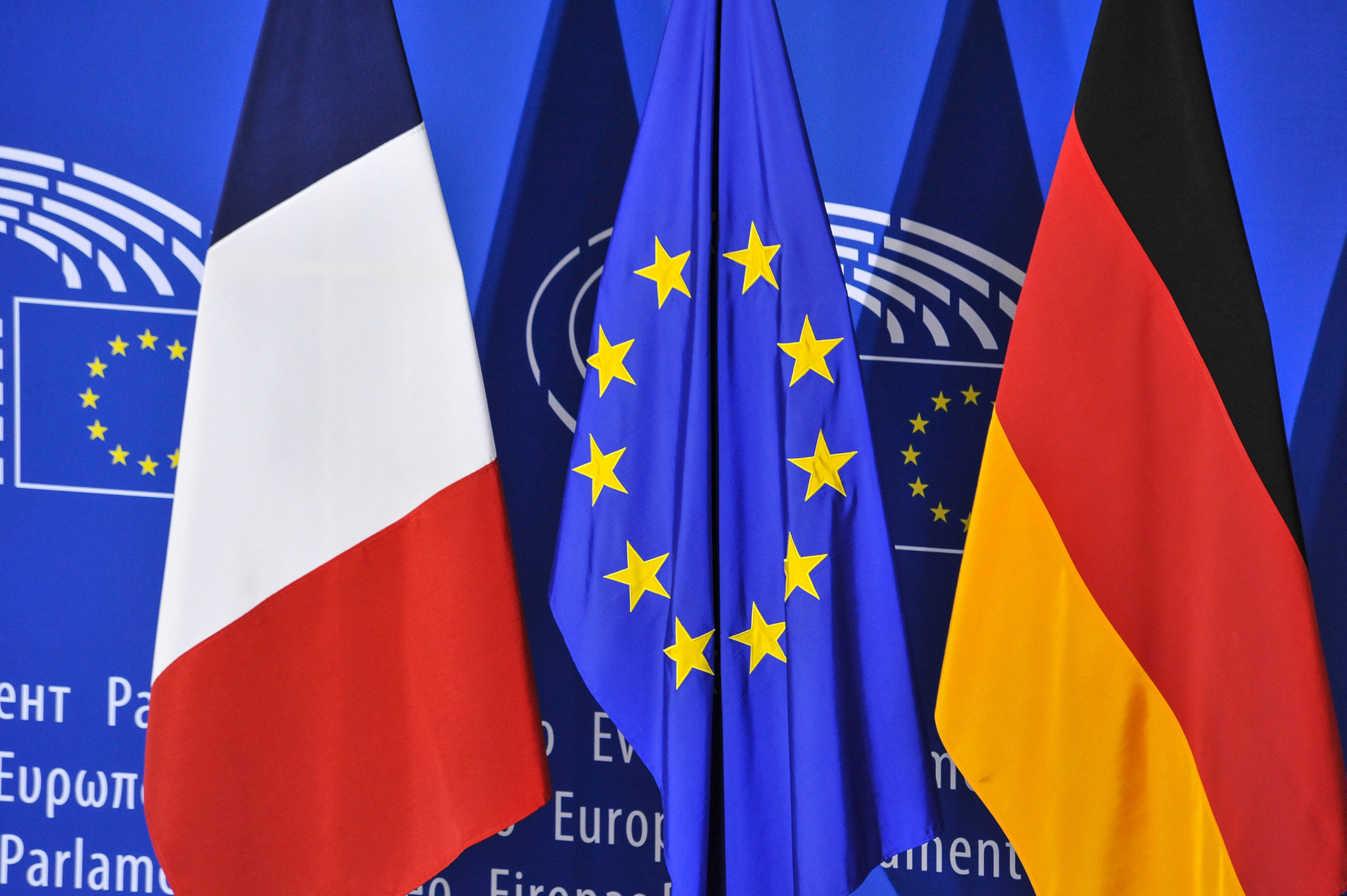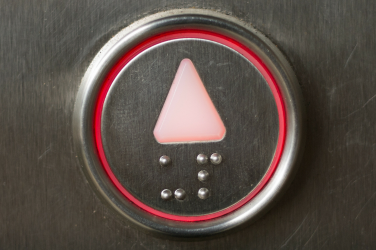At a time of internal divisions and external threats for the European Union, Kai Möritz makes the case for a strong Franco-German partnership to lead reforms.
Crisis, crisis, crisis
The wounds of the financial crisis and migration pressures, both breeding ground for the emergence of right wing populism and nationalism, starkly highlighted the absence of effective management within European Union. As of today, the EU did not deliver on managing the refugee crisis or creating a resilient and competitive economy, as demonstrated by a fragile banking sector and high unemployment rates. These challenges did not fall from heaven; they show the EU’s incompleteness and need for reforms. Quite unusually, both sides of the aisle – left and right, liberal and conservative, Europhile and Eurosceptic – agree: the status quo is not sustainable. In its simplified form, the debate is generally “Do we need more Europe or less Europe?”

When it comes to deeper integration – ie. “more Europe” – the European “twin engine”, the famous and infamous Amitié franco- allemande, started sputtering during the period of crisis.The German and French governments have had their own differences in the recent past. Under the presidency of Francois Hollande, damages seemed unrepairable. While he received historically low approval ratings from the French people, the German political mainstream worryingly witnessed the post-crisis development of the so-called grande nation. In their mind, France was the new “sick man of Europe” and Hollande was weak, unreliable and mostly incapable of reforming France. In the 2017 French election, this even led members of the SPD (the German socialist party) to openly support Emmanuel Macron instead of Benoit Hamon, their natural sister party’s candidate.
Meanwhile, Germany, as the perceived hegemon of the EU, was reluctant to step up and deliver concrete proposals. There was no big picture vision on how to proceed with Europe besides highlighting the need for fiscal discipline and reforms in the member states. The call for solidarity in the refugee crisis did not feel particularly credible and Merkel’s competence in European politics was again questioned after her controversial Greece rescue policies.
Call it a comeback?
Why is the relationship between France and Germany relevant today?
European leaders in national governments, the European Parliament, the European Central Bank, the Commission, and literally any other agency, identified fundamental weaknesses of the European framework. Dublin II, the European agreement determining member states’ responsibility for asylum seekers, dramatically went into flames in 2015. The euro shakes after every political crisis – as recently witnessed in Italy. Finally, the old order of international security is under scrutiny with the tweeter-in-chief’s outbursts and attempts to do away with multilateralism.
In this turmoil, the Franco-German relationship has changed. France’s president Emmanuel Macron swept last year’s French election with an unmatched pro-European campaign. He did not blink when conquering the Elysée on the score of the European Anthem. His Sorbonne speech outlined ambitious EU reforms, with a European sovereignty narrative. Meanwhile in Germany, where the preamble of the Grundgesetz sets Germany’s commitment to a United Europe, Angela Merkel responds positively, yet cautiously, to Macron’s proposals.
And what do the others say? Guy Verhofstadt, member of the European Parliament and one of the most pro-European political players in Brussels, reacts enthusiastically about the renewed friendship. French and German economists worked-out a roadmap for further Euro reforms, including Macron’s former advisor Jean Pisani Ferry. Thus, many journalists claim the rebirth of the franco-allemande leadership.
The road ahead
What has changed and what needs to change?
Regarding major steps of European integration history, Emmanuel Mourlon-Druol from Brussels-based think tank Bruegel, describes the agreements between France and Germany often as one-sided and incomplete, yet sold as a compromise in shiny ceremonies. Based on different economic and social models, the “twin engine” did not always speak the same language. This may have led them to deliver short-sighted and unsustainable solutions.
However, the current state of play concerning Euro reforms seems that the two are now actually consensus- seeking and are willing to sacrifice political capital. While Macron sacrificed his approval ratings with labour market reforms in France and an ongoing battle with the powerful SNCF (France’s infrastructure company), Angela Merkel adds complaints to her controversial refugee policy. The current government crisis in Germany and open fight between the sister parties CSU and CDU add even more significance to the ongoing European Council meeting where all European leaders meet in Brussels.
In June 2018, French and German government ministers met in Meseberg. Their joint declaration was named Renewing Europe’s promises of security and prosperity and includes agreements on future euro reforms. Admittedly, details are not mentioned, and the proposal is widely criticised as vague. Yet the state of play can also be interpreted as a real compromise. While Germany follows Macron’s proposal of a euro area budget, its size will most likely be less ambitious than Macron may have wanted. While they agree on a centralised institution, the conditionality on pooled resources will most likely be strict.
However, the proposal at least touches all aspects of euro area issues. In theory, the agreement could be a compromise instead of a one-sided proposal, complete instead of incomplete, and a step towards deeper integration which was not induced by an urgent crisis response.
Now, it’s up to France and Germany to promote their roadmap in the rest of the Eurozone.

EU 2+25?
Many news articles describe an agreement between Paris and Berlin as a European agreement, essentially pretending the EU 27 are actually the EU 2+25. The ambition must be to deliver reforms based on compromise, completeness and democratic legitimacy.
This will necessitate broking a deal including the newly elected Italian government and the hawkish Dutch government.
The franco-allemand “twin engine” needs oil, a modernised design and proper maintenance.
While without the “Big Two” any reform is impossible, the EU is not a bilateral agreement between two countries who went from Erbfeindschaft to best friends. Regardless of the positive historical development following WW2, the franco-allemand “twin engine” needs oil, a modernised design and proper maintenance. Recurring festivities to celebrate the friendship will simply not do anymore.
Admittedly, French wine and German beer lay a great foundation for these events – but shouldn’t support efforts to forget the increasingly complicated political landscape. While France and Germany need to take the lead, they have to involve the other 25 (or 17 in the euro area). A Berlin-Paris steamroll is not much better than the German hegemon or Brussels dictatorship. The deal will eventually involve some trading of seemingly unrelated issues like Banking stability with immigration quotas, the watering down of some proposals (there will most likely not be an EU finance minister) and last, but not least, money talks. In this case, less enthusiastic governments might receive considerable investments financed by the potentially upcoming euro area budget.

This weekend’s Council Summit, where all leaders met in Brussels, was widely overshadowed by the hottest topic possible: immigration. While – as usual- everyone involved ended the summit questioning whether the glass is half full or half empty, the nature of the deal could pre-shadow upcoming reform processes.
Just the immigration issue will not be magically solved overnight, the reshaping of the euro area will also not happen in one shot. France and Germany have to fight together for their reform ideas. Drafting was the first step; messy deals will be the next steps. The most important, however, remains to keep both eyes on the necessity of completeness (the economic rationale), democratic legitimacy (the political rationale) and therefore sustainability (the future of Europe).
When the heat turns up and noise is everywhere, the “Big Two” have to prove they can be on the forefront of creating security and prosperity in Europe, while continuing the celebration of their friendship. At the end, having friends around in good times is always nice, but absolutely crucial in bad times.
Cover Photo: European Council, CC BY_NC_ND 2.0 (Flickr)







